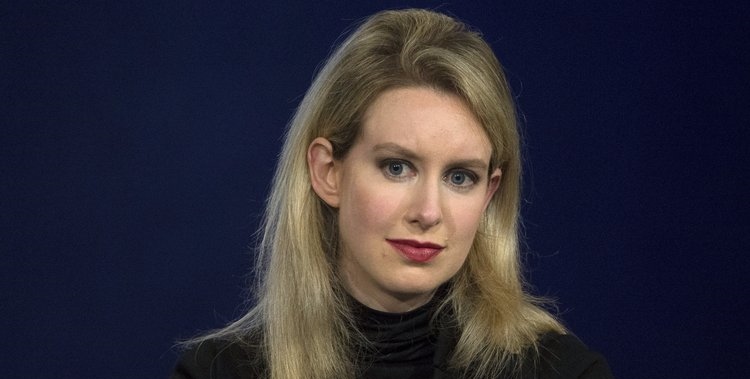Fall from grace
March 15, 2018 | Expert Insights

Elizabeth Holmes, the disgraced founder of health technology company, Theranos, has agreed to relinquish control of her company to settle charges of “massive fraud” brought by the US Securities and Exchange Commission. As part of the deal, she has also been ordered to pay a sum of $700 million.
Background
Prior to the controversy, Elizabeth Holmes, was regarded as one of the most successful women in the world. She was just 19 when she founded Theranos, a privately held blood test company based in Palo Alto, California. By December 2004, she had raised $6 million to fund Theranos. By the end of 2010, Holmes had more than $92 million in venture capital for Theranos. In July 2011, Holmes was introduced to former Secretary of State George Shultz. After a two-hour meeting, he joined the Theranos board of directors. By 2014, she was declared the youngest self-made billionaire by Forbes magazine. At one point, she was valued at over 9 billion dollars.
However, reports began to emerge about the veracity of the company’s claims. In 2015, the Wall Street Journal reported that the Edison blood-testing device by Theranos might provide inaccurate results. At the time Holmes said that the reportage was inaccurate and that she would prove the company’s claims. In January 2016, the Centers for Medicare and Medicaid Services (CMS) sent a warning letter to Theranos after inspecting its Newark, California laboratory. CMS regulators proposed a two-year ban on Holmes from owning or operating a blood lab after the company had not fixed problems within its California lab in March 2016. By 2016, Forbes had revised Holmes’ net worth and stated that she had gone from being valued at 4.5 billion dollars to “nothing.”
Some high-profile investors of the company included Rupert Murdoch and current US Secretary of Education, Betsy DeVos.
Analysis
The main financial regulator in the US, the Securities and Exchange Commission has noted that entrepreneur Elizabeth Holmes and Theranos (the company that she founded) had deceived investors. The regulatory body stated that the company and Holmes raised over $700 million by making fraudulent claims about the company’s blood testing methods. The company has also been accused of falsely claiming that its products had been used by the US army in Afghanistan. Former Theranos President Ramesh "Sunny" Balwani has also been implicated.
According to the SEC’s complaint, Theranos, Holmes, and Balwani made “numerous false and misleading statements in investor presentations, product demonstrations, and media articles by which they deceived investors into believing that its key product — a portable blood analyser — could conduct comprehensive blood tests from finger drops of blood, revolutionising the blood testing industry”.
Holmes has been ordered to pay $700 million dollars for her actions.
“The Theranos story is an important lesson for Silicon Valley,” SEC’s San Francisco office director Jina Choi said in a statement. “Innovators who seek to revolutionise and disrupt an industry must tell investors the truth about what their technology can do today, not just what they hope it might do someday.”
“In truth ... Theranos’ proprietary analyser could complete only a small number of tests, and the company conducted the vast majority of patient tests on modified and industry-standard commercial analysers manufactured by others,” the SEC said.
“The charges against Theranos, Holmes, and Balwani make clear that there is no exemption from the anti-fraud provisions of the federal securities laws simply because a company is non-public, development-stage, or the subject of exuberant media attention.”
“As a result of Holmes’ alleged fraudulent conduct, she is being stripped of control of the company she founded, is returning millions of shares to Theranos, and is barred from serving as an officer or director of a public company for 10 years,” SEC Enforcement Division co-director Stephanie Avakian said. “This package of remedies exemplifies our efforts to impose tailored and meaningful sanctions that directly address the unlawful behaviour charged and best remedies the harm done to shareholders.”
“The company is pleased to be bringing this matter to a close and looks forward to advancing its technology,” Theranos’ independent directors said in a statement. Holmes and Balwani have not made any statements. They have not admitted nor denied any wrong doing on their part.
Assessment
Our assessment is that the case will be a reckoning not only for healthcare companies but also technology start-ups around the world. It is imperative to present accurate results to investors. Misrepresentation especially in the world of healthcare could end up hurting the general public. Holmes’ fall from grace should be considered a lesson for future entrepreneurs and innovators seeking to disrupt industries.








Comments